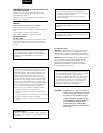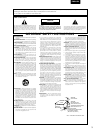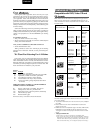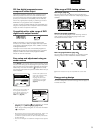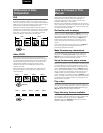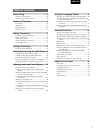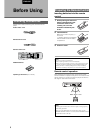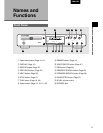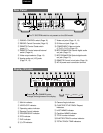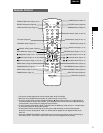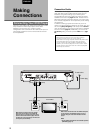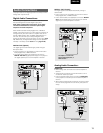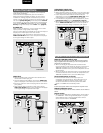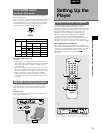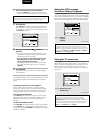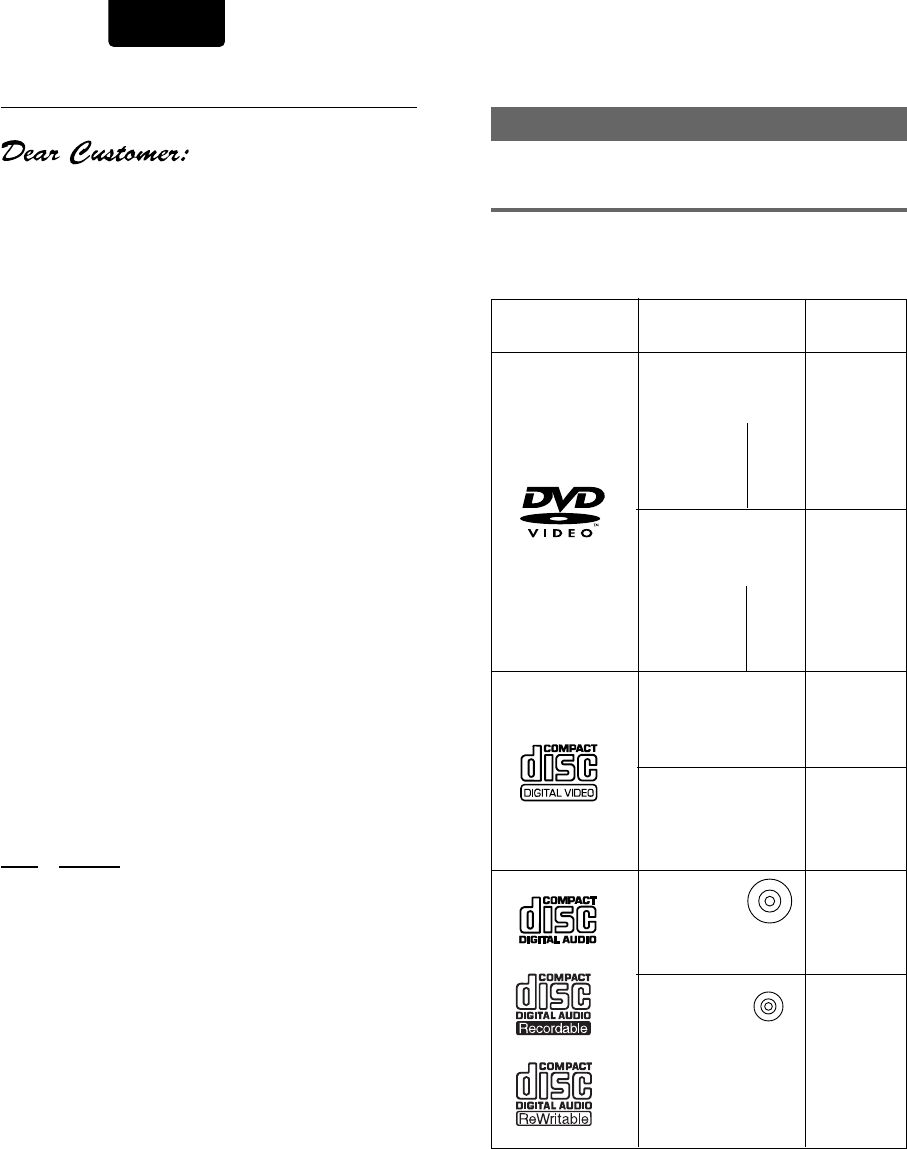
4
ENGLISH
Features of This Player
Compatible with DVD, Video CD and
CD formats
DVD, Video CD and CD discs that display the logos shown
below can be played back on MARANTZ DVD players. For
more information on discs compatible with this player, refer to
the table below.
The disc format logos shown above are found on disc labels
or on disc jackets.
• To prevent malfunction, do not use an 8 cm (3 in.) adaptor
(for CDs).
• Discs other than the ones indicated above cannot be
played on this unit.
• DVDs that have incompatible region numbers, DVD-Audio,
DVD-ROM, and CD-ROM cannot be played on this unit.
The region number of the player can be found on the rear
panel.
* Playing recordable CDs
• Note that this unit cannot record onto recordable discs.
• This unit can play music-use CD-R and CD-RW discs. However,
depending on the condition of the player and the disc, you may
find that not all discs will play successfully. (For example, if the
disc is scratched or dirty, or if the player’s pickup lens is dirty.)
12 cm (5in.)/
single-sided
12 cm (5in.)/
double-sided
8 cm (3 in.)/
single-sided
8 cm (3 in.)/
double-sided
1 layer
2 layer
1 layer
2 layer
1 layer
2 layer
1 layer
2 layer
DVD VIDEO
DVD VIDEO
Types of playable
discs and their marks
Diameter/
Playable sides
Playback time
Digital audio
Digital video
(MPEG 2)
133 min.
242 min.
266 min.
484 min.
VIDEO CD
CD
Digital audio
Digital video
(MPEG 2)
DVD VIDEO
VIDEO CD
CD
41 min.
75 min.
82 min.
150 min.
VIDEO CD single
CD single
Digital audio
Digital video
(MPEG 1)
Max. 74
minutes
Digital audio
Digital video
(MPEG 1)
Max. 20
minutes
Digital audio
Max. 74
minutes
12 cm (5 in.)/
single-sided
8 cm (3 in.)/
single-sided
12 cm (5 in.)/
single-sided
8 cm (3 in.)/
single-sided
Digital audio
Max. 20
minutes
Selecting fine audio equipment such as the unit you’ve just
purchased is only the start of your musical enjoyment. Now it’s
time to consider how you can maximize the fun and excitement
your equipment offers. This manufacturer and the Electronic
Industries Association’s Consumer Electronics Group want you to
get the most out of your equipment by playing it at a safe level. One
that lets the sound come through loud and clear without annoying
blaring or distortion-and, most importantly, without affecting your
sensitive hearing.
Sound can be deceiving. Over time your hearing “comfort level”
adapts to higher volumes of sound. So what sounds “normal” can
actually be loud and harmful to your hearing. Guard against this by
setting your equipment at a safe level BEFORE your hearing
adapts.
To establish a safe level:
• Start your volume control at a low setting.
• Slowly increase the sound until you can hear it comfortably and
clearly, and without distortion.
Once you have established a comfortable sound level:
• Set the dial and leave it there.
Taking a minute to do this now will help to prevent hearing
damage or loss in the future. After all, we want you listening for a
lifetime.
We Want You Listening For A Lifetime
Used wisely, your new sound equipment will provide a lifetime
of fun and enjoyment. Since hearing damage from loud noise is
often undetectable until it is too late, this manufacturer and the
Electronic Industries Association’s Consumer Electronics Group
recommend you avoid prolonged exposure to excessive noise. This
list of sound levels is included for your protection.
Decibel
Level Example
30 Quiet library, soft whispers
40 Living room, refrigerator, bedroom away from traffic
50 Light traffic, normal conversation, quiet office
60 Air conditioner at 20 feet, sewing machine
70 Vacuum cleaner, hair dryer, noisy restaurant
80 Average city traffic, garbage disposals, alarm clock
at two feet.
THE FOLLOWING NOISES CAN BE DANGEROUS
UNDER CONSTANT EXPOSURE
90 Subway, motorcycle, truck traffic, lawn mower
100 Garbage truck, chain saw, pneumatic drill
120 Rock band concert in front of speakers, thunderclap
140 Gunshot blast, jet plane
180 Rocket launching pad
Information courtesy of the Deafness Research Foundation.
*
*




